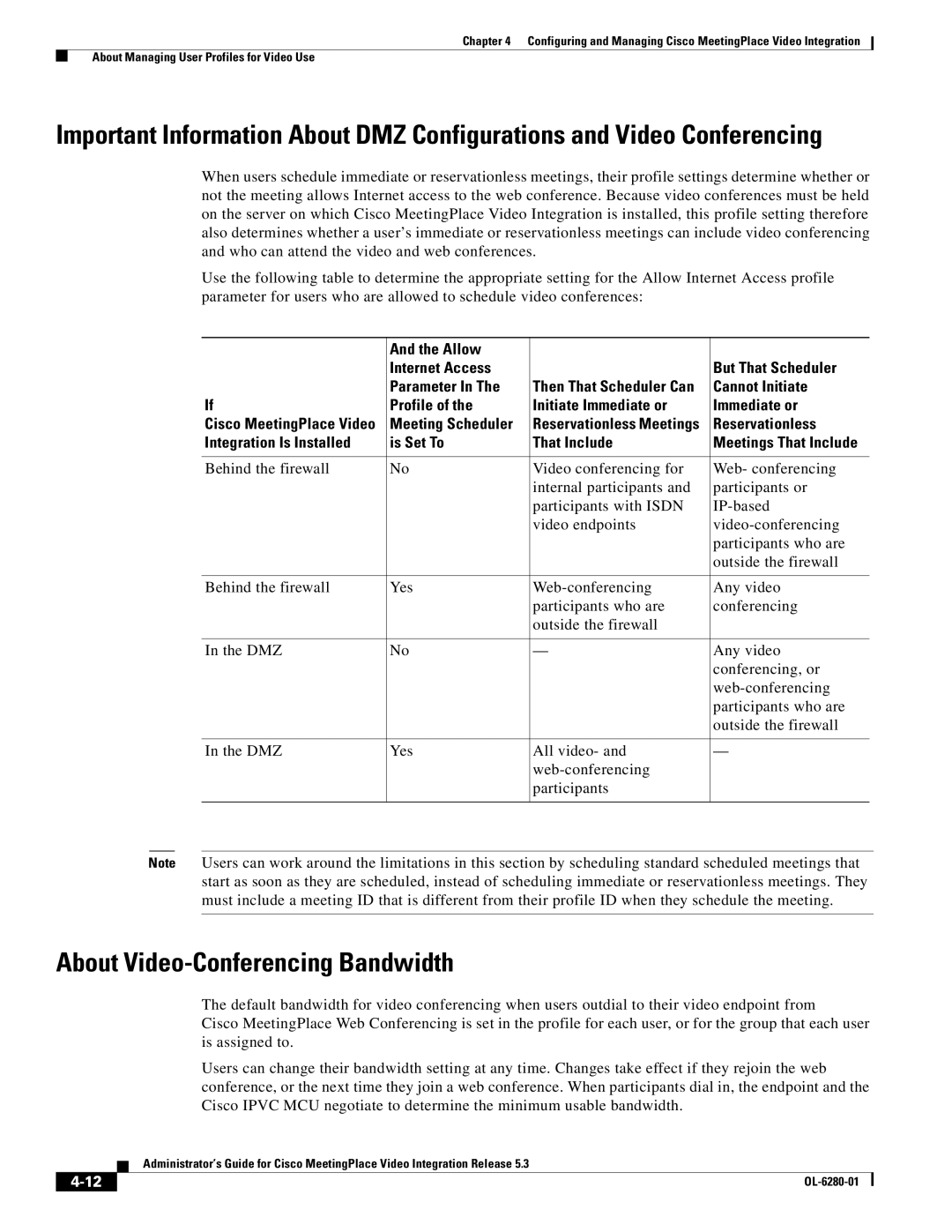
Chapter 4 Configuring and Managing Cisco MeetingPlace Video Integration
About Managing User Profiles for Video Use
Important Information About DMZ Configurations and Video Conferencing
When users schedule immediate or reservationless meetings, their profile settings determine whether or not the meeting allows Internet access to the web conference. Because video conferences must be held on the server on which Cisco MeetingPlace Video Integration is installed, this profile setting therefore also determines whether a user’s immediate or reservationless meetings can include video conferencing and who can attend the video and web conferences.
Use the following table to determine the appropriate setting for the Allow Internet Access profile parameter for users who are allowed to schedule video conferences:
| And the Allow |
|
|
| Internet Access |
| But That Scheduler |
| Parameter In The | Then That Scheduler Can | Cannot Initiate |
If | Profile of the | Initiate Immediate or | Immediate or |
Cisco MeetingPlace Video | Meeting Scheduler | Reservationless Meetings | Reservationless |
Integration Is Installed | is Set To | That Include | Meetings That Include |
|
|
|
|
Behind the firewall | No | Video conferencing for | Web- conferencing |
|
| internal participants and | participants or |
|
| participants with ISDN | |
|
| video endpoints | |
|
|
| participants who are |
|
|
| outside the firewall |
|
|
|
|
Behind the firewall | Yes | Any video | |
|
| participants who are | conferencing |
|
| outside the firewall |
|
|
|
|
|
In the DMZ | No | — | Any video |
|
|
| conferencing, or |
|
|
| |
|
|
| participants who are |
|
|
| outside the firewall |
|
|
|
|
In the DMZ | Yes | All video- and | — |
|
|
| |
|
| participants |
|
|
|
|
|
Note Users can work around the limitations in this section by scheduling standard scheduled meetings that start as soon as they are scheduled, instead of scheduling immediate or reservationless meetings. They must include a meeting ID that is different from their profile ID when they schedule the meeting.
About Video-Conferencing Bandwidth
The default bandwidth for video conferencing when users outdial to their video endpoint from
Cisco MeetingPlace Web Conferencing is set in the profile for each user, or for the group that each user is assigned to.
Users can change their bandwidth setting at any time. Changes take effect if they rejoin the web conference, or the next time they join a web conference. When participants dial in, the endpoint and the Cisco IPVC MCU negotiate to determine the minimum usable bandwidth.
Administrator’s Guide for Cisco MeetingPlace Video Integration Release 5.3
|
| |
|
